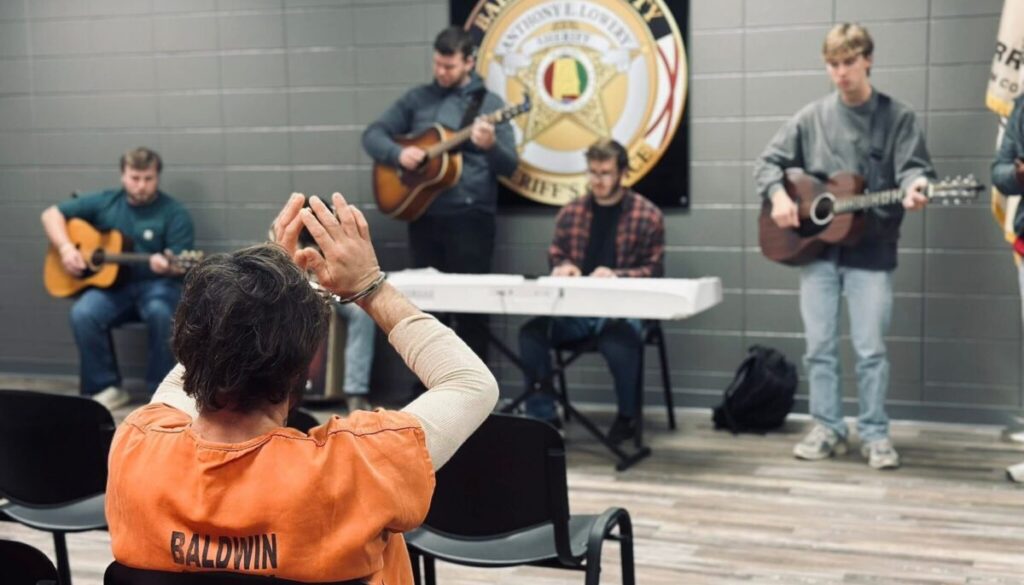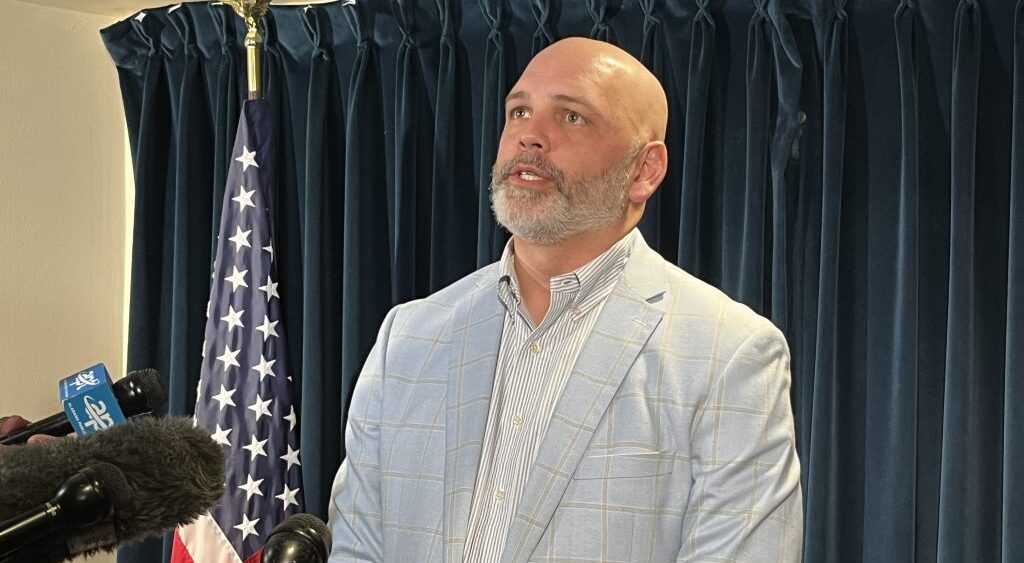Three conservative advocacy organizations say they’re joining forces to pressure Alabama lawmakers to prohibit gender identity and sexual orientation discussions in public schools and mandate abstinence-based sexual education, among other issues.
At a town hall on Monday (Oct. 28), Hannah Rees of Clean Up Alabama announced the new “Protect Alabama’s Children Coalition,” designed as a one-stop hub for legislative updates and advocacy resources.
“Anything Clean Up Alabama would support, legislation-wise, or anything that LOCAL Alabama or Moms for Liberty would support legislation-wise, and things that we’re actually hoping to get implemented this legislative session in 2025 — it’ll be a one-stop shop where you can come and get all your information in that one spot,” Rees explained.
‘No more excuses, just fix it!’
Moms for Liberty Madison chapter chairwoman Emily Jones held up a bright yellow postcard with the coalition’s legislative agenda and the phrase “No more excuses, just fix it!” on one side. “On the back side of it, you can sign it and put your zip code on it,” Jones said. “We will take these and deliver them to your legislators for you.”
The group’s legislative agenda includes the removal of sexual content from libraries’ youth sections. Additionally, they want a state law clearly defining men and women based on their biological sex at birth, a bill Rep. Susan DuBose, R-Hoover, told attendees she will re-file for the 2025 legislative session.
This year and last, members of the LBGTQ community rallied against that bill, saying it would target transgender people, whose gender identity may not align with their biological sex.
DuBose, Rep. Mack Butler, R-Rainbow City and Alabama Attorney General Chief Counsel Katherine Robertson answered questions from Jones, LOCAL Alabama founder Allison Sinclair and attendees during the 90-minute meeting held at St. Joseph’s Catholic Church.
Taking ‘baby steps’
Some of the audience’s questions focused on how to influence lawmakers to pass laws. Butler and DuBose recommended calling and emailing lawmakers directly and visiting them at the State House. Even then, the law may not contain everything they initially hoped for, Butler said.
“I know people don’t like to hear this, but you have to take baby steps,” Butler said. “Because there’s 140 legislators and you’ve got to work with all the personalities and all the people there to get what you can.”
“Then you come back the next year and you tweak it,” he added. Butler said he will bring back a bill to expand the law banning discussion about gender or sexual orientation from K-5 students to K-12 students.
DuBose said she will likely bring back a bill that didn’t pass that would have required public school sexual education to “exclusively and emphatically teach sexual risk avoidance content.” The bill did not prohibit information about contraception, but said it could not “normalize, encourage, or promote” sexual behavior.
DuBose said she will file a bill to raise the age at which children can make medical decisions for themselves from 14 to 18.
“That will solve some of these problems that we have with children being able to decide their own mental health decisions or their own transitioning decisions,” she said.
New sense of urgency
“No. Those will continue to be parents’ decisions, just like every other thing is for a child under the age of 18.” She said she’s been considering the bill for a couple of years, but she feels a new sense of urgency after talking with others about it.
“I’ve realize that that’s probably one of the most urgent things that we need to pass this year.”
DuBose has held meetings in other counties in recent months sharing her legislative priorities, which align with the newly formed coalition’s priorities.
After the meeting, she told Alabama Daily News the issues discussed at the meeting are similar to ones other people across the state are talking about.
She also said she heard new concerns about the Parent’s Right to Know law, which went into effect in June and requires schools to allow parents to review the materials teachers use in the classroom. “I love that one, but I think we’re still trying to work out the details,” DuBose said.
EDITOR’S NOTE — This story was written by Trisha Powell Crain and originally published by Alabama Daily News. It is reprinted with permission.






Share with others: